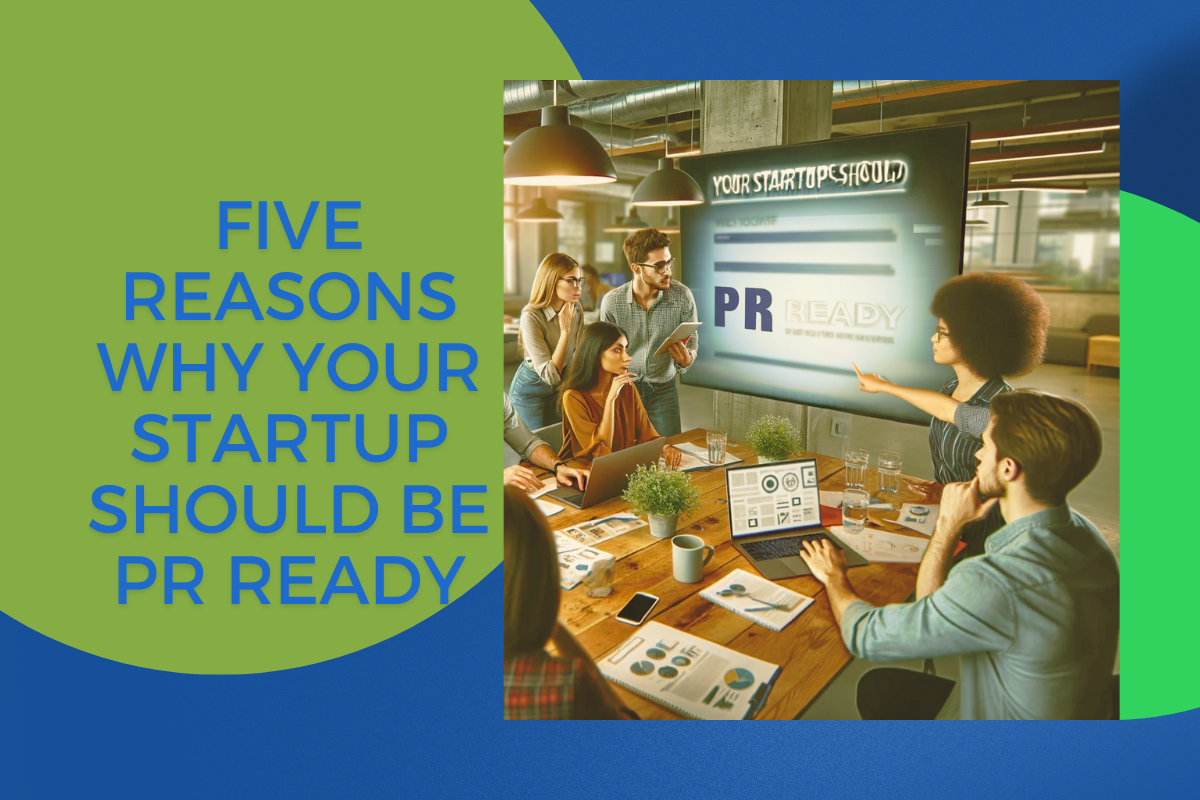In the dynamic and fast-paced world of startups, achieving visibility and credibility is crucial for success. Public relations (PR) plays a vital role in building a positive reputation, attracting investors, and reaching potential customers. However, timing and strategic planning are key to maximising the benefits of PR efforts.
Here, we explore when startups should consider PR and outline the essential steps to take for an effective PR strategy.
When to Consider PR
While PR can be immensely valuable, it’s crucial to consider your company’s stage before diving headfirst.
- Post-Product Development: Startups should ideally consider PR once they have a well-defined product or service. Before reaching out to the media or engaging with a PR agency, ensure that your offering is market-ready and you have a clear understanding of its unique selling points. Make sure you have FAQs around the product, imagery and any research and numbers around the sector. Pretty much what you would have in your pitch decks.
- Pre-Launch Phase: Engaging in PR activities before launching your product can create buzz and anticipation. This phase is perfect for generating media interest, teasing upcoming releases, and building a foundation of brand awareness. Its useful here to focus on key trade media, i.e. media that is focused on your target market.
- Post-Funding Rounds: Securing funding is a significant milestone that warrants PR efforts. Announcing funding rounds can attract further investment, establish credibility, and signal growth potential to the market. It also reassures your existing customers that you are a reliable company to work with and they made a good decision to trust you with their business.
- Key Business Milestones: Major achievements, such as significant partnerships, product updates, or expanding into new markets, are opportune moments for PR. These milestones provide newsworthy content that can enhance your brand’s reputation.
- Crisis Management: While it’s best to have a proactive PR strategy, sometimes startups need to consider PR during a crisis. Having a PR plan in place for potential issues can help manage negative publicity and mitigate damage to your brand’s reputation.
Key Steps for an Effective PR Strategy
- Define Your Objectives: Start by identifying what you aim to achieve with your PR efforts. Whether it’s increasing brand awareness, attracting investors, or driving sales, clear objectives will guide your strategy and measure success.
- Identify Your Target Audience: Understanding your audience is crucial for tailoring your PR messages. Identify who you want to reach—be it potential customers, investors, or industry influencers—and develop messages that resonate with their interests and needs.
- Craft a compelling story: Journalists and media outlets are inundated with pitches daily. To stand out, your startup needs a compelling narrative. Highlight what makes your story unique, whether it’s a groundbreaking product, an inspiring founder’s journey, or a mission-driven initiative.
- Build Relationships with the Media: Developing relationships with journalists and media outlets in your industry can significantly enhance your PR efforts. Personalise your pitches, follow up respectfully, and be responsive to media inquiries to build credibility and trust.
- Leverage Social Media: Social media platforms are powerful tools for amplifying your PR messages. Use these channels to share press releases, engage with your audience, and provide real-time updates. Social media also allows you to control your narrative and reach a wider audience.
- Monitor and Measure Results: Track the outcomes of your PR activities to understand what works and what doesn’t. Use metrics such as media coverage, website traffic, and social media engagement to evaluate the effectiveness of your strategy and make data-driven adjustments.
- Be consistent. Consistency is key in PR. Regularly update your audience with news, maintain an active online presence, and continue building relationships with the media. Consistent efforts help sustain visibility and reinforce your brand message over time.
For startups, the right timing and a well-executed PR strategy can make a significant difference in establishing a strong market presence and achieving business goals. By considering PR at the right stages and following these key steps, startups can effectively leverage media exposure to drive growth and success.
Remember, PR is not a one-time effort but an ongoing process that requires strategic planning and consistent execution.
If you need help, book a slot for a free consultation.



